In China, there are still many undistinguished ethnic groups. And one of those mysterious groups is the Chuanqing people, which means “dressing in cyan clothes” in Chinese. Thus, literally, Chuanqing’s dressing style is simple cyan or light blue. Until now, nearly 700,000 Chuanqing people are located in the southwest of Guizhou Province, with their own culture flourishing. According to the Chinese calendar, Year 2016 is regarded as the Year of the Monkey. Coincidentally, the symbol of Chuanqing is mandrill: a kind of monkey. The following is going to unveil the mystery of Chuanqing people’s traditional customs celebrated in Spring Festival.
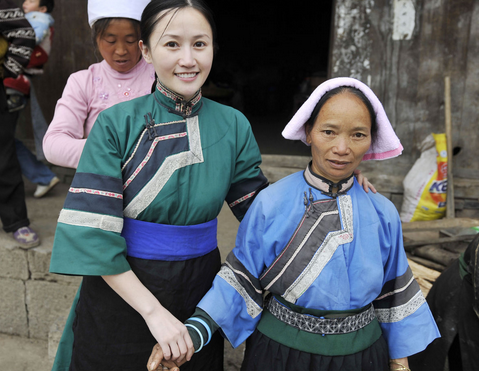
Chuanqing people’s dressing style
Like the adjacent Buyi minority, one of the foremost things for Chuanqing in Spring Festival is to make Ciba (cooked glutinous rice pounded into paste). Usually, the glutinous rice is soaked in water the night before the New Year’s Eve. On the morning of the next day, the rice is steamed in a big wooden container called Zhengzi. When it is prepared, the most exciting moment comes: as soon as the rice is poured into a stone trough, people wield their wooden mallets, beating the trough violently. They may enforce all their strength on the first round of six strikes, for every strike represents the clearing away of bad luck and unfortunate events in the following year. The harder the strike is, the better the New Year will be. Meanwhile, they shout aloud a local doggerel in order to wish for a good life.
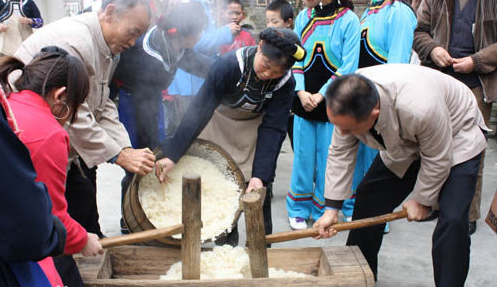
Making Ciba
Also, on this day’s morning, Chuanqing people will kill a rooster with a red comb to worship their god called Wuxian. The worship is followed by three steps. Firstly, the rooster must be cleaned thoroughly, including his feet and his mouth, ensuring the purity and divine respect for the god. Next, a bowl of salt water is set before the altar (including pictures or earthen jars of the god) and they hold the rooster in both hands and bow three times. The last step is to cut into this sacrificial offering’s throat and pull out a piece of its feather wet by its own blood. After this “blood feather” is stuck on the altar, the worship is finished.
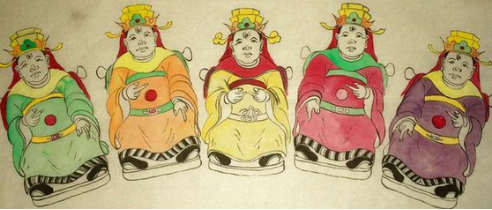
The images of Wuxian God
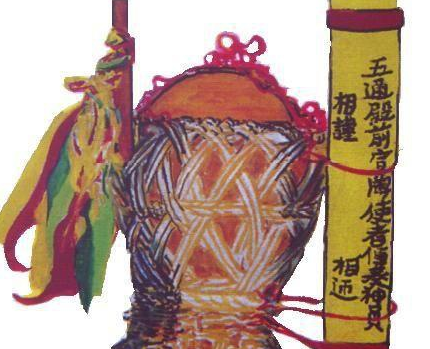
An earthen jar of Wuxian God
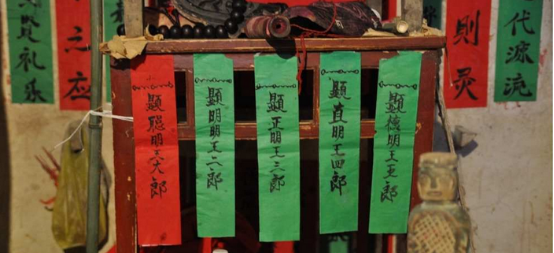
The altar
Another important thing for Chuanqing is to play Nuo Opera, also known as Tiaopusa. Nuo Opera originates from the Qing dynasty, reflecting Chuanqing people’s local life. When the setting is ready, several people begin to act out sections of local stories by wearing masks. These stories usually convey good wishes or something to explain supernatural phenomena. During the Spring Festival, the performance of Nuo Opera features on bringing good luck to everyone and becomes great entertainment. People gather around and enjoy it together, and here comes the New Year!
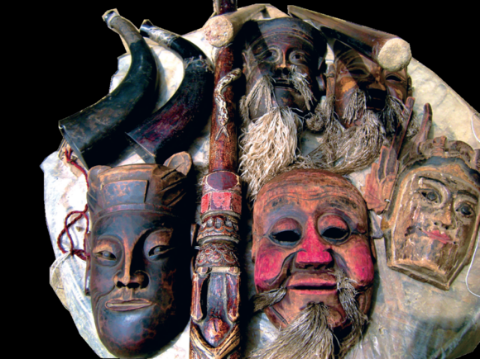
The various masks
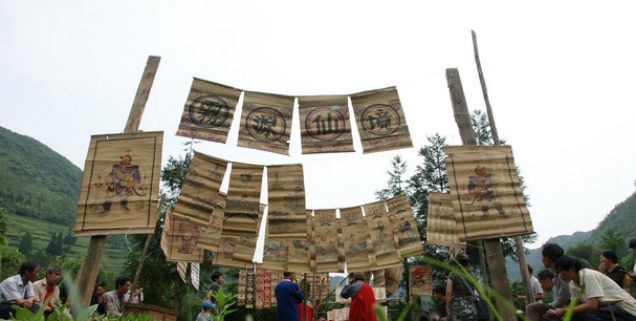
The setting of Nuo Opera
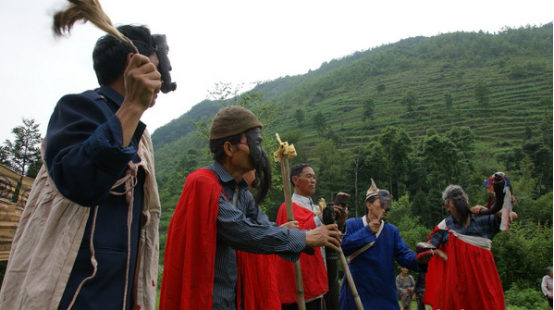
Nuo Opera

